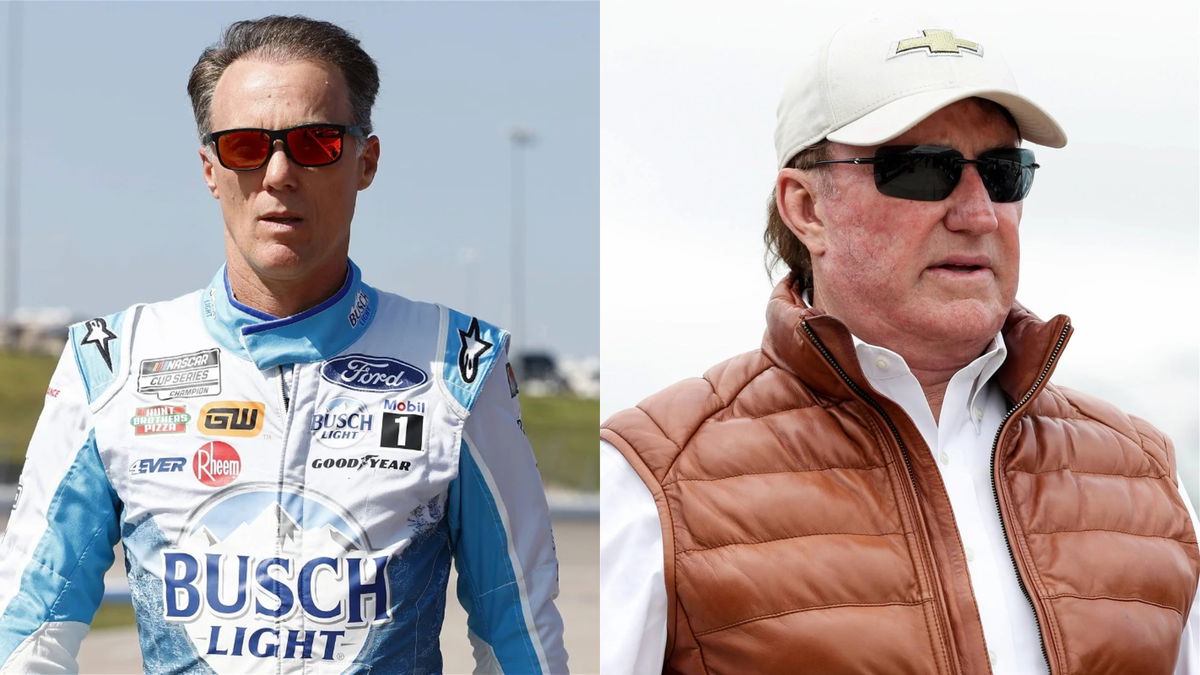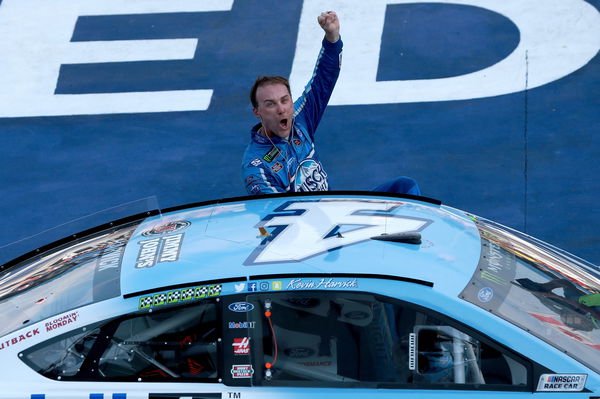
Imago
Image Credits: Imago

Imago
Image Credits: Imago

Imago
Image Credits: Imago

Imago
Image Credits: Imago
In the late 1960s, Richard Childress, a former driver with modest beginnings, founded Richard Childress Racing in Welcome, North Carolina. Starting with a single car, Childress’ team quickly made its mark in NASCAR history. In 1983, RCR secured its first NASCAR Cup Series victory at Riverside International Raceway with driver Ricky Rudd. By 1986, the team clinched its first championship with Dale Earnhardt behind the wheel.
Watch What’s Trending Now!
And as RCR’s legacy continued to grow, a new chapter was about to unfold with the arrival of a young driver who would leave an indelible mark on the team’s history.
Kevin Harvick’s entry into NASCAR was nothing short of extraordinary. His ability ot perform under pressure was exemplified in 2011 when he clinched a victory at Martinsville Speedway, passing Dale Earnhardt Jr. with just 4 laps remaining. Recently, talking about his decision to leave RCR, Harvick admitted, “I think back to my time at RCR. The best thing I ever did was walk into Richard Childress’ office and tell him that I was leaving. It wasn’t great in that moment, but it showed him the respect of getting way out in front of it.”
Now, he has revealed other reasons why he felt that parting ways with RCR was the best option for him at the time.
Kevin Harvick’s bold move of leaving RCR for a new beginning
In the latest episode of his Happy Hour podcast, Kevin Harvick reflected on pivotal moments in his NASCAR career, particularly his tenure at RCR and subsequent move to Stewart-Haas Racing. “I would say if I won a championship, I’d stay. I think that after 13 years, you’re just asking that question to yourself. And ultimately, that was really the reason for going to the Stewart-Haas Racing. I love Richard Childress. I love everything that he did for my career. I love the people. I love everything about what I was in. But ultimately, it came down to that question. I think that if I win one, I’d stay,” he said, when asked if a Championship win at Richard Childress Racing would have convinced him to stay in the team.
Harvick’s tenure at RCR, spanning from 2001 to 2013, was a period of growth and challenges. His entry into the Cup Series was accelerated following the tragic death of Dale Earnhardt in 2001. Stepping into Earnhardt’s seat in the No. 29 Chevrolet, Harvick secured a victory in just his 3rd Cup Series start at Atlanta Motor Speedway.
Over the next 13 years, Harvick amassed 23 Cup Series wins with RCR, including notable victories at tracks like Phoenix Raceway and Kansas Speedway. Yet, Harvick’s desire for a more hands-on role in team operations was evident during his time at RCR.
“The interesting part about that, I would have stayed for another reason, too. I asked to be part owner of the 29 car. And ultimately, they didn’t agree to that because I wanted to be more involved in the daily things that happened. But I would have stayed for that, too,” he revealed.
This desire for greater involvement in team operations was a significant factor in his eventual move to Stewart-Haas Racing in 2014. But a pivotal moment in his career came in 2011 when he made the decision to shut down Kevin Harvick Inc. (KHI), the team he co-owned with his wife, DeLana.

Imago
@HaasFactoryTeam/X
“We decided we were shutting down KHI in 2011. And in 2012, the teams got dispersed, and RCR took the Xfinity teams, and the truck teams went to Bob Newberry. So they took the truck teams, and so we got rid of everything,” he said. The closure of KHI marked the end of a significant chapter in NASCAR team ownership. The decision was influenced by various factors, including the desire to focus on his driving career and the challenges of managing a multi-team operation.
In 2013, Harvick announced his departure from RCR to join SHR in 2014. “And then in 2013, ultimately, I decided to go to Stewart-Hass Racing. And that’s when the decision was made, at the end of 2012. But yeah, there were a couple. I’d say a championship and partial team ownership of that 29 car. I would have stayed for both those reasons,” he said. The decision was driven by a desire for change and the opportunity to work with Tony Stewart, a fellow driver and team owner.
The transition to SHR proved to be a turning point, as Harvick secured his first Cup Series championship in 2014, validating his decision to make the switch. Yet, Harvick never fails to draw parallels between past NASCAR chaos and current on-track drama.
Kevin Harvick breaks down the pressure of high-stakes racing
Kevin Harvick could relate all too well to the drama at Kansas Speedway‘s Hollywood 400, where Denny Hamlin and Bubba Wallace’s clash flipped the race for both drivers. Back in 2007 at Montreal’s Circuit Gilles Villeneuve, Harvick was running 5th with 4 laps to go when chaos erupted.
In a split-second move, he made contact with Scott Pruett, sending him spinning and clearing the path for Harvick to win. “But in ’07, I wrecked two of my cars and won the race. My team owner was not happy…We flew to Montreal, and it was very chaotic finish,” Harvick reflected.
The Montreal race was not just about Harvick versus Pruett; multi-car accidents ruined teammate Ron Fellows’ chance to win, while Robby Gordon and Marcus Ambrose shuffled in the final laps. Despite the controversies, Harvick stood victorious, and he empathized with Hamlin’s position at Kansas.
“Well, I mean, I know I wiped everybody out, but I won the race and I did my job as a driver for the team… but when you’re in that car, you have to do everything that you can to win for the car that you’re driving. That’s the obligation that you have.”
Harvick also addressed the “unwritten rules” of racing teammates and employees, noting the pressure to win. “I’ve been in a position that Denny Hamlin is in currently where you drive for another team and you own cars. And it’s really difficult because if he doesn’t drive in there and try to win the race and do what he did, his team is going to be mad…That’s the kind of the unwritten rule. If you’re going to bang doors with your teammate and you’re going to do all those things, you better make sure one of you wins the race,” he said.
Both Kansas drivers then faced intensified playoff pressure at the final Round of 12 race at Charlotte.


